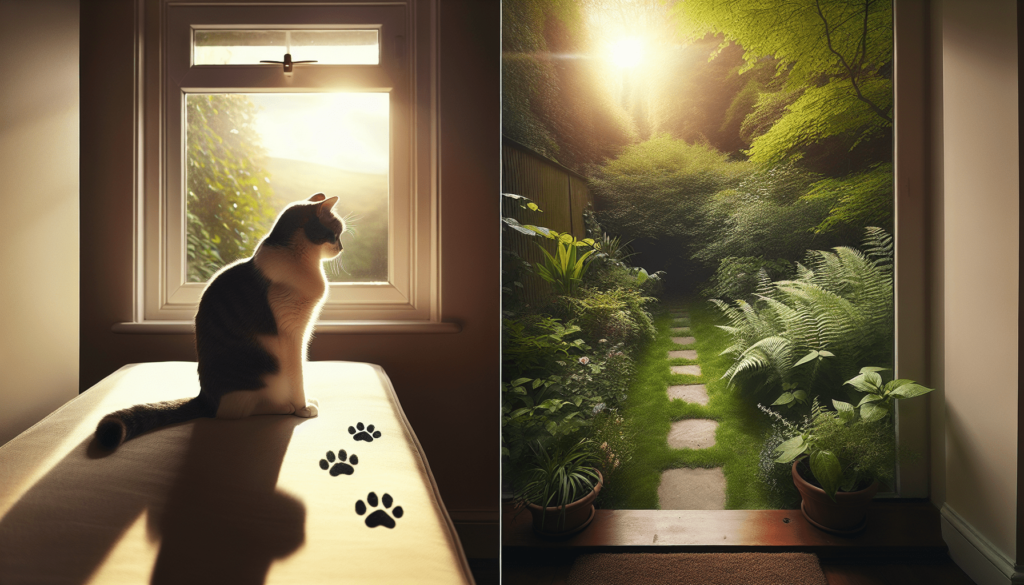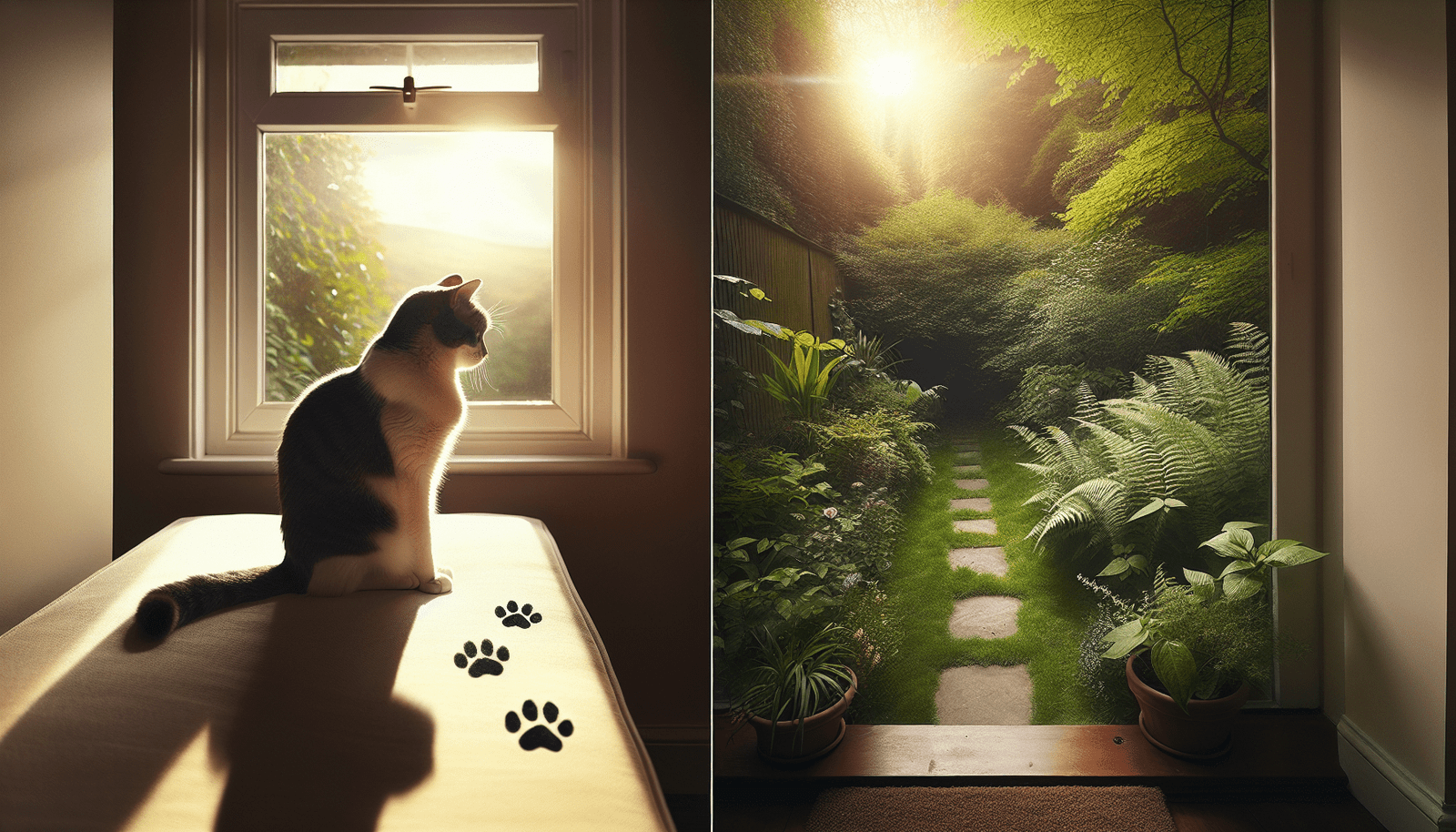Are you considering whether to keep your feline friend indoors or allow them to roam outside? Making this decision can be a tough one, as both options have their pros and cons. In this article, we will discuss the advantages and disadvantages of both indoor and outdoor cats, helping you make an informed choice that aligns with your cat’s safety and well-being. Whether you are a seasoned cat owner or a first-time feline parent, this article will provide valuable insights to ensure the best possible life for your beloved feline companion.

Health and Safety
Reduced risk of injury
Indoor cats are protected from the various dangers that come with being outside. They are less likely to be hit by cars, attacked by other animals, or injured in fights with other cats. By keeping your cat indoors, you can significantly reduce the risk of accidents and injuries.
Protection from predators
One of the major advantages of keeping your cat indoors is protection from predators. Outdoor cats are at a higher risk of being attacked by wild animals such as coyotes, foxes, or even larger birds of prey. By providing a safe and secure environment inside your home, you can protect your feline friend from these potential dangers.
Lower exposure to disease and parasites
Indoor cats are less likely to come in contact with various diseases and parasites that can be found outside. They are protected from ticks, fleas, worms, and other harmful parasites that can affect their health. Additionally, indoor cats are less likely to contract contagious diseases from other cats, thus reducing the risk of illness.
Exercise and Stimulation
Limited opportunities for exercise
While outdoor cats have ample opportunities to run, jump, and explore, indoor cats may have limited space to engage in physical activities. Therefore, it is essential for owners of indoor cats to provide appropriate outlets for exercise, such as interactive toys, scratching posts, and climbing structures. Ensuring regular playtime sessions can help indoor cats maintain a healthy weight and boost their overall well-being.
Lack of mental stimulation
Outdoor environments offer numerous sensory experiences and mental stimulations for cats. Indoor cats, on the other hand, may face a lack of variety in their environment and may become bored or restless. To address this, owners can provide puzzle toys, hiding spots, and window perches to mimic outdoor experiences and engage their cats mentally.
Environmental Impact
Reduced impact on wildlife
Outdoor cats can have a significant impact on the local wildlife population. They may hunt and kill birds, small mammals, and reptiles, disturbing the delicate ecological balance. By choosing to keep your cat indoors, you can help protect wildlife and contribute to the preservation of local ecosystems.
Preventing damage to gardens and neighbors’ property
Cats are known for their strong instinct to explore and mark their territory. Unfortunately, outdoor cats may choose neighboring gardens or properties as their territory, causing damage to plants and leaving behind messes. By keeping your cat indoors, you can prevent potential conflicts with neighbors and the destruction of gardens, ensuring a more harmonious living environment.
Bonding and Interaction
Increased opportunity for socializing with humans
Indoor cats have more frequent interaction with their human families, leading to increased opportunities for socialization and bonding. They become more familiar with their owners’ behavior, moods, and routines. This consistent human interaction can strengthen the cat-human bond, resulting in a more affectionate and well-adjusted pet.
Enhanced bond with owner
Living in close quarters with their owners, indoor cats are more likely to develop a strong bond with their human companions. They thrive on attention, love, and the feeling of being part of the family. Regular playtime, cuddling, and grooming sessions can strengthen the bond between you and your indoor cat, creating a deep and rewarding relationship.

Lifespan and Quality of Life
Indoor cats live longer
Studies have shown that indoor cats tend to live longer than their outdoor counterparts. The reduced risk of accidents, exposure to diseases, and encounters with predators contribute to their increased lifespan. With proper care, regular veterinary check-ups, and a safe indoor environment, you can help your cat enjoy a longer and healthier life.
Improved quality of life for indoor cats
Indoor cats generally have a higher quality of life as they are protected from the dangers and uncertainties of the outdoor world. They have a constant supply of food, clean water, and comfortable shelter. Additionally, they are not subjected to extreme weather conditions or the stress of finding food and defending their territory. Indoor cats also receive regular veterinary care, ensuring their overall well-being.
Freedom and Independence
Outdoor cats have more freedom to roam
Outdoor cats have the freedom to explore the world beyond the confines of their home. They can indulge their natural instincts by climbing trees, hunting, and experiencing the outdoors firsthand. This freedom allows them to engage in a wider range of activities, stimulating both their physical and mental well-being.
Indoor cats rely on their owners for stimulation
While indoor cats may have restricted access to the outdoors, they rely on their owners to provide stimulating activities and environmental enrichment. By incorporating playtime, interactive toys, and rotation of toys and scratchers, owners can ensure their indoor cats receive the mental stimulation necessary for a fulfilling and happy life.
Training and Behavior
Limited ability to train outdoor cats
Outdoor cats are generally less responsive to training commands and behavioral cues. Their independent nature, coupled with the distractions and freedom of the outdoors, makes it harder to establish consistent training routines. Consequently, outdoor cats may be more challenging to control in terms of obedience and behavior.
Indoor cats are easier to train
Indoor cats, on the other hand, are more trainable as they have a more controlled environment and limited distractions. They can be taught basic commands, such as using a litter box or scratching on appropriate surfaces. Additionally, indoor cats are more receptive to behavioral training, making it easier to correct any undesirable behaviors they may exhibit.
Noise and Disturbance
Less noise and disturbance from outdoor cats
Outdoor cats can sometimes cause disturbances in the neighborhood, especially at night when they engage in territorial disputes or mating behaviors. Keeping your cat indoors can prevent these disturbances, ensuring a quieter and more peaceful living environment for both you and your neighbors.
Indoor cats may cause damage or make noise
While outdoor cats can be catalysts for disturbances, indoor cats may also contribute to noise or damage within the household. They may vocalize for attention or scratch furniture if their needs for stimulation and play are not met. However, with proper environmental enrichment, regular playtime, and interaction, many of these unwanted behaviors can be minimized or redirected.
Responsibility
More responsibility for outdoor cats
Owning an outdoor cat comes with additional responsibilities. You must ensure that your cat is regularly vaccinated, protected against parasites, and has a secure and safe outdoor space. You may also need to consider their socialization needs and provide suitable shelters for protection from inclement weather. Outdoor cats require diligent monitoring and are more vulnerable to various risks, requiring responsible ownership.
Indoor cats require more care and attention
While outdoor cats may require additional responsibilities, indoor cats also demand care and attention. They rely on their owners for all of their needs, including food, water, litter box maintenance, and of course, playtime. Indoor cats benefit from more frequent interaction and mental stimulation, which requires dedication and time from their owners.
Legal Considerations
Outdoor cats may be subject to local laws and regulations
Depending on your location, there may be certain laws and regulations regarding outdoor cats. Some municipalities enforce leash laws or require cats to be kept indoors to protect local wildlife or prevent property damage. It is essential to familiarize yourself with these laws and ensure compliance if you choose to let your cat roam outdoors.
Indoor cats do not have legal restrictions
Keeping your cat indoors eliminates the need to worry about any legal restrictions. You can have peace of mind knowing that your cat is within the confines of your home, safe from potential legal issues or conflicts with your community. Indoor cats provide an easier, hassle-free approach to pet ownership when it comes to legal considerations.

